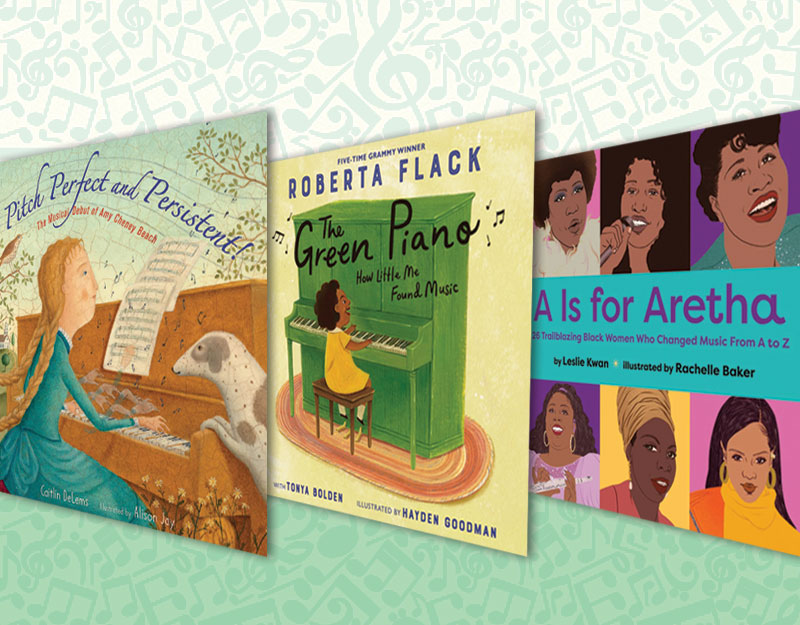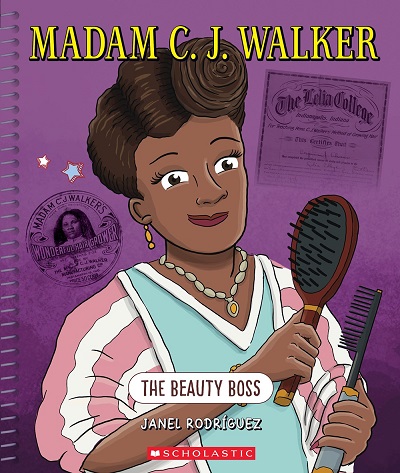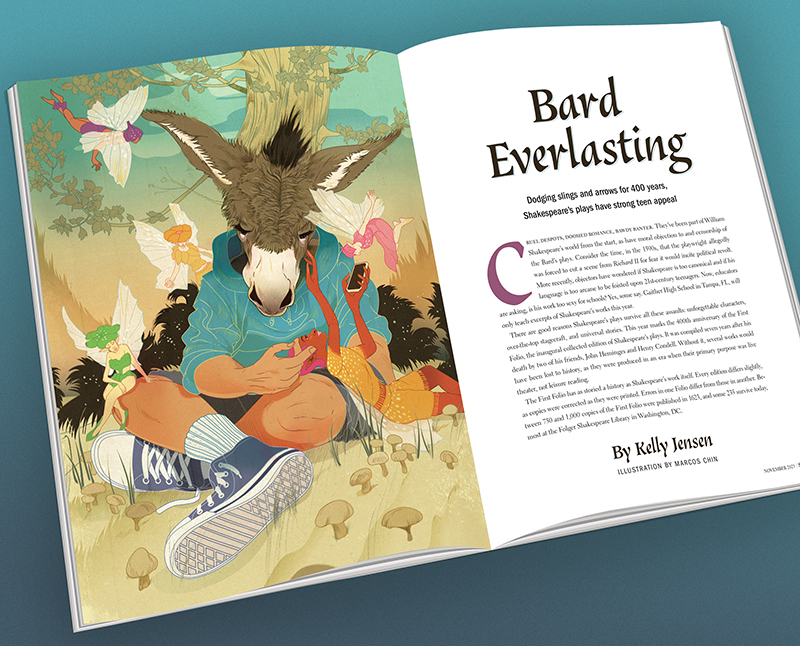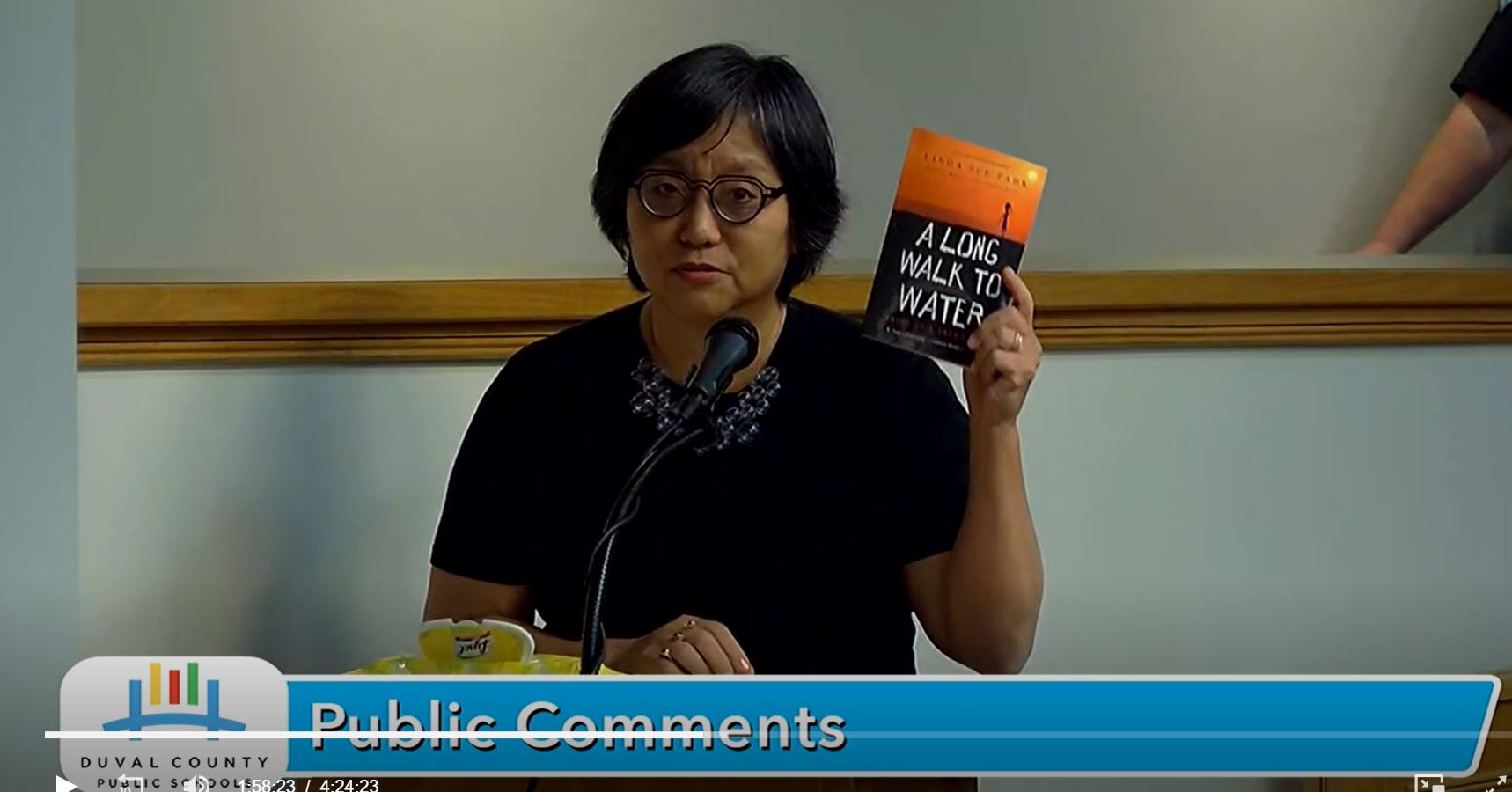Fusenews: Love That Photoshop
I had every intention of getting my last Librarian Preview recap done in time for today. Then I got home from an event last night around 10:30 p.m. and suddenly that plan didn’t seem all that practical. I hesitate to post them on Saturdays, but I might have to in this case. In the meantime, two Fusenews in two days. I’m getting lazy in my old age.
-
 I share my birthday with some cool folks. Nabokov, Shakespeare, President McKinley . . . cause he’s so awesome? But when I was a kid the #1 person I knew I shared April 23rd with was old Shirley Temple. As far as I can tell I never saw a single one of her films. I just knew who she was, and kids today are in the same boat. So the six-year-old in me felt particularly pleased when I read Peter’s amazing post Surely, She Needs a Biography. Says he: "So here’s my question: if most kids know about Shirley Temple, how come no one has ever written a good biography about her for children? Scrounging around on the internet and in library catalogs, I can only find one volume currently in print — a 32-page formula bio called SHIRLEY TEMPLE : CHILD STAR by John Bankston. Going back in time, I see a Yearling paperback biography, as well as a couple books (including one by James Haskins) which focus on her adult career as a public servant and ambassador. But where is the definitive children’s book about the definitive child star?" That is a bloody good question. For crying out loud, she was a CHILD star! As bio subjects go, what more do you want?
I share my birthday with some cool folks. Nabokov, Shakespeare, President McKinley . . . cause he’s so awesome? But when I was a kid the #1 person I knew I shared April 23rd with was old Shirley Temple. As far as I can tell I never saw a single one of her films. I just knew who she was, and kids today are in the same boat. So the six-year-old in me felt particularly pleased when I read Peter’s amazing post Surely, She Needs a Biography. Says he: "So here’s my question: if most kids know about Shirley Temple, how come no one has ever written a good biography about her for children? Scrounging around on the internet and in library catalogs, I can only find one volume currently in print — a 32-page formula bio called SHIRLEY TEMPLE : CHILD STAR by John Bankston. Going back in time, I see a Yearling paperback biography, as well as a couple books (including one by James Haskins) which focus on her adult career as a public servant and ambassador. But where is the definitive children’s book about the definitive child star?" That is a bloody good question. For crying out loud, she was a CHILD star! As bio subjects go, what more do you want?
-
My Living Nightmare of Encouraging Kids to Read is Over. And may The Onion‘s funding never waver for even a second. Thanks to bookshelves of doom for the link.
-
Where the Wild Things Are inspired by Japanese folk tales? I love it! That’s one idea I’ve never heard proposed before but over at Burger and Berger Tom/Sam makes a pretty compelling case. "Boy takes boat to island over-run by strange creatures. Boy subdues them, rules them briefly. Returns home. This is the story of Momotaro or Peach Darling, as retold by William Griffiths in his 1887 book ‘Japanese Fairy World’.” Cool.
-
"Oh, to lose LIMES! No disrespect to Alcott (love her!) but if you update the March family, they do not become the working poor. They become a wealthy educated family fallen on hard times. Oddly enough, that’s the topic of the book I’ll have out next fall, and I have to say that writing about rich people who have to get rid of their house staff is NOT quite the same as tackling systemic class issues." That’s Laurel Snyder speaking over at Chasing Ray in a remarkable post simply called What a Girl Wants #7: Because We Are Not All Rich Girls. Various authors chime in on class in YA literature. It’s the topic that under most circumstances dare not speak its name. Your necessary reading for the day, then.
-
Halloween is on the horizon. So far Crooked House is winning the Best Homemade Costume contest. She also found a sweet hook-up for noses and tails.
-
Process! Wonderful wonderful cover concept process. Adam Rex gives you the skinny on Guess Again? and its long road to completion. "We always intended to have some sort of surprise associated with the cover–some funny dissonance between what you thought you were looking at and what you discovered once the cover was opened. So most of these are presented in pairs–cover on the left, inside page on the right." Someday I want someone to post one of these with continual commentary. I also like his answer to the dreaded, " Oh, you’re an author? Would I know any of your books?"
-
Daily Image:

All I’m gonna say about this is that Spike Jones was briefly running a contest called Where the Wild Things Ought to Be and this was a sample entry. The contest ends today. Sorry I didn’t know to tell you about it sooner.
ADVERTISEMENT
ADVERTISEMENT
Filed under: Fusenews
About Betsy Bird
Betsy Bird is currently the Collection Development Manager of the Evanston Public Library system and a former Materials Specialist for New York Public Library. She has served on Newbery, written for Horn Book, and has done other lovely little things that she'd love to tell you about but that she's sure you'd find more interesting to hear of in person. Her opinions are her own and do not reflect those of EPL, SLJ, or any of the other acronyms you might be able to name. Follow her on Twitter: @fuseeight.
ADVERTISEMENT
ADVERTISEMENT
SLJ Blog Network
2024 Books from Pura Belpré Winners
Winnie-The-Pooh | Review
Parsing Religion in Public Schools
Finding My Own Team Canteen, a cover reveal and guest post by Amalie Jahn
ADVERTISEMENT







Boy, I really hope that LeVar Burton is kidding!
Since this is The Onion we’re talking about, you can bet it’s not him. Just someone who knows how ridiculous it would sound to say such things when LeVar is such an advocate. On a related note, apparently he linked to it on Twitter, which proves that he has a sense of humor (not always a given). AND he’s apparently doing what he can to get a new Reading Rainbow going. Good guy.
GUESS AGAIN!, actually.
Or were doing something meta, there? Like, “I’m telling you the title of the book is GUESS WHAT?, but guess again! It’s not.”
I have some mad passing-the-buck skillz, so let’s see how I justify initially writing the wrong title of your book in my post. Um… got it! S&S has never sent me a copy and.. uh.. they have a different book coming out this fall that’s called GUESS WHAT? and I got confused (I think that may actually be true).
But I prefer to think that we’re on to something meta here as well.
Aw, heck. I’ll just make it up to you with a review tomorrow. How’s that?
One of Betty Smith’s characters (I’m fairly sure it was Maggie, in “Maggie-Now”) complained about the March girls’ regarding themselves as poor. She said something like ‘How can they be poor when they can waste potatoes to put in a muff! And I don’t even have a muff.’ Her father tried to teach her what ‘relative’ meant, and pointed out that Maggie, who had two hair ribbons (one for the week and one for Sunday) was poor relative to a classmate who had a different hair ribbon for every day of the week, but rich relative to a classmate who only had a piece of string to tie her hair.
The Pulitzer Prize-winning novel March, which tells the same story as Little Women from the father’s point of view, makes it clear how many of the privations suffered by the Alcotts (as transformed into the Marches) were voluntary. The father was a visionary, who believed in vegetarianism, idealism, and voluntary simplicity. He valued education and the life of the mind over piling up treasures.
Like fathers everywhere, he imposed (or should I say inflicted?) his theories upon his children.